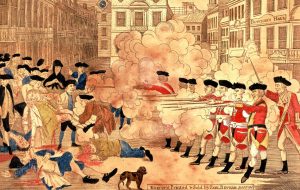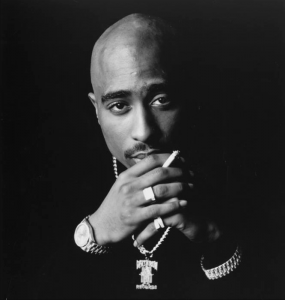Winner of the Spring 2017 StMU History Media Awards for
Best Article in the Category of “People”
On January 30, 1933, Adolf Hitler was appointed Chancellor of Germany. Hitler quickly turned Germany’s fragile Weimar democracy into a one-party dictatorship. During his rule, Hitler pursued a plan to harass one half-million German Jews to leave Germany. Hitler promoted a “master race” scheme that sought to keep the so-called Aryan race pure from racial contamination from all other races he deemed to be inferior. This Aryan race consisted of only Germanic peoples who had the characteristics of blond hair, blue eyes, and light colored skin. Three years after taking power, Hitler hosted the 1936 Olympics in the German capital of Berlin. This was his opportunity to put his “New Germany” on display for all the world to see.

As Hitler’s Nazi government prepared for these Olympics, athletes from the United States were also preparing themselves for the coming competition in Berlin. In the United States, African Americans were dealing with their own problems of racism. Not only was life hard as an African American in the 1930s, but life was even harder as an African American athlete. One African American, who would later become one of the most famous athletes in the history of Track and Field, was James Cleveland “Jesse” Owens. At the age of eight, he had moved to Cleveland, Ohio with his family, who had sought for better work and educational opportunities. “On his first day of school, he introduced himself as ‘J. C.,’ but his teacher misunderstood him to say “Jesse.” The young Owens bashfully accepted the mistake, thus taking on the name by which he would become famous.”1 Jesse Owens would grow up loving to run. He was the fastest runner in his school and loved competing against others. His dream was to attend the University of Michigan, but there were no scholarships offered in those days and his parents could not afford tuition. Instead, he attended Ohio State University, where he worked for the boosters to pay for his expenses.
In the Summer of 1936, at the Olympic trials, Jesse finished first in all three of the events that he competed in. He had trained hard in the preceding months, and the hard training paid off, allowing Owens to attend the Olympics of 1936, known as “The Nazi Games” or as “Hitler’s Games.” In actuality, these Olympic games were not originally intended to be games hosted by the Nazis: the “Nazis were never invited to host the Games—and probably never would have applied to do so. Instead, the International Olympic Committee (IOC) had awarded the Olympics to Germany’s Weimar Republic in 1931 before the Nazi takeover as a way of welcoming Germany back to sports respectability.”2

Ironically, Adolf Hitler knew nothing about sports and expressed little interest in hosting the Olympics; instead he wished to host an all-German athletic celebration. “But Dr. Josef Goebbels, the influential minister of propaganda, glimpsed how Germany might score a tremendous public-relations coup and convinced Hitler to support both the Winter and Summer Games.”3 Influenced by Dr. Josef Goebbels, Hitler used these Olympic games as a political relation with other countries.
Several weeks after the Olympic trials, Jesse Owens competed in the Berlin Olympics and made a name for himself. He won four gold medals, in the 100m, 200m, 4x100m relays, and in the long jump. Jesse Owens had set records and represented America in a humble and most respectable way, considering the circumstances. Even though many have claimed that Adolf Hitler refused to congratulate Jesse Owens, others go further by claiming that Hitler actually “snubbed” Owens:
By the end of that fabulous week in Berlin, an attractive yarn attached itself to the name of Jesse Owens. Supposedly, he was ‘snubbed’ by Adolf Hitler, who reportedly refused to congratulate him publicly after his victories. Actually, the story was concocted by American sportswriters, who were all too willing to read the worst of motives into Hitler’s behavior and to assume innocent excellence from America’s newest hero. Although it had no basis in fact, the story of ‘Hitler’s snub’ was repeated so often that people took it as truth. It remains one of the great anecdotes of American popular culture.4

Racism was as alive in the United States as it was overseas in Germany in the 1930s. German Jews were a persecuted minority in the 1930s, and African Americans were experiencing similar treatments of racism in 1930s America. “World reaction to Hitler’s program resulted in a movement to boycott Nazi goods and services, which included a movement to take away the 1936 Olympics from Berlin in an attempt to force the German government to cease its discriminatory practice against the Jews.”5 It was not until the United States entered World War II that sentiment against racism began to penetrate the American social consciousness. Even though Owens continued to face white racism in his own country subsequent to his Olympic victories, he later reflected on his experiences of racism: “What I’ve done is no more than countless other Negros (and Jews, Poles, Greeks and just Americans in general) have done…. I’ve been a Negro in America for fifty-seven years, and I want to tell you that [being black in America] can be pure hell at times and can shake anyone’s sureness. Often it’s worse if you were the world’s fastest human.”6 When Owens returned to the United States after the Olympics, President Franklin Delano Roosevelt refused to acknowledge his accomplishments or even invite him into the White House. It was not until 1979 that President Jimmy Carter presented Jesse Owens with the Living Legend Award. Forty-three years after his Olympic victories, Jesse Owens had finally been properly recognized for his great achievements.
Despite all the controversy that Jesse Owens encountered while doing what he loved, he is a true representation of perseverance and determination. Jesse Owens passed away in March of 1980 from lung cancer.
- Salem Press Biography Encyclopedia, January 2017, s.v. “Jesse Owens,” by William J. Baker. ↵
- John Rodden and John P. Rossi, “Berlin Stories,” Commonweal 143, no. 13 (August 12, 2016): 25. ↵
- John Rodden and John P. Rossi, “Berlin Stories,” Commonweal 143, no. 13 (August 12, 2016): 26. ↵
- Salem Press Biography Encyclopedia, January 2017, s.v. “Jesse Owens,” by William J. Baker. ↵
- D. A. Kass, “The Issue of Racism at the 1936 Olympics,” Journal of Sports History, no. 3 (1976): 223. ↵
- Joseph Boskin, “Jesse Owens: Running in the American Dilemma,” Review in American History, no. 3 (1987): 457. ↵



161 comments
Cesar Zavala
Can not believe I had not heard of the “Nazi” Olympics. I could not imagine how bizarre it would have been for anyone who did not fit Hitler’s ideal human being. If I had to relate it to something I’d say it must have felt a little like the hunger games. It’s good to know that Jesse Owens, a black man, was able to stuff it into Hitler’s face that his ideal race wasn’t necessarily the greatest at everything.
Anayeli Prieto
Great article!!! First of all Hitler was terrible for his racism and his description about the “perfect Jew” when he is a racist assassin. Jesse Owens is very similar to Jackie Robinson! The incredible braveness of these two who faced everyone who discriminated against them and the way they didn’t let the comments of others bring them down and they kept achieving their goals. I’m glad that we were able to plave all of that hatred behind us and we can acknolege them fir their fantastic talent.
Teresa Valdez
I love the anecdote about how he got his nickname. However, this and a few other facts seem like they distract from the main topic of the article. Looking back at the life of Jesse Owens is very inspirational. Although Americans did not persecute minorities to the extent that Nazi Germany did, this article forced me to confront American history and realize the extent of the horrible treatment of African Americans and other minorities. Great Article!
Mario De Leon
Great article! I liked how your opening article set the setting for the drama of the Olympics games. It’s important to know that Jesse Owens’ wins were more than just winning a medal for his country and you did a good job of explaining that. By Jesse Owens’ winning his events he represented good prevailing against evil. This was a super interesting article to read great job.
Natalia Zuniga
Interesting article!I can tell you took a lot of time and did a lot of research for this article! I had heard a lot about Jesse Owens, so it was great to get this different side of him. I loved your approach. The photo of the Jesse Owens set up to run was great and caught my attention to, as well as your photo of Adolf Hitler was a nice touch. Overall great article!
Jennifer Pogue
This is a truly great article. Not only is it well researched, it is well written. This topic really interested me. It is so sad that his accomplishments were not celebrated because of his skin color. It is really disappointing for me to learn that president FDR did not invite him to the White House. Luckily our society is learning to be more accepting and we now celebrate everyone’s accomplishments no matter how they look.
Gabriela Medrano
Nice! I enjoyed the read. Your article had a new vibe to it. Also, I liked how you compared two historical events on the basis of race from one side of the world to the other, yet placing Owens as your main story. A little respect lost for FDR, and more gained to Jimmy Carter. Thanks to Carter, and others I’m sure, Jesse Owens was given the respect and recognition he deserved to be awarded before it was too late. Well done!
Cameron Mays
This article was quite interesting, and patriotic. I was initially interested because I was in track & field during high school and it was quite the sport, and really pushed you as a person. Thus, I’m pretty biased in articles like this because analyzing one of the sports great is especially cool to me. On the patriotism side, this was a huge time in history for a multitude of reasons which you described. In short, it was a great time for American morale. Overall, the article seems well-researched and written well. Nice job.
Hayden Hollinger
I loved reading more about Jesse Owens. This is a story that I had learnt about before but this article still managed to teach me more about the story. I admire Owens so much for being brave enough to stand up for himself and still compete on the international stage despite the horrible racists that were in power at the time. I love this story even more because of how successful Owens was which really made a statement.
Alyssa Vela
This was a really interesting article! I’ve always thought it was amazing just how much one person can endure and still manage to overcome it. I had never heard of Jesse Owens story, so learning about him as well as his accomplishments and what he overcame was great. I can only imagine what it was like to live as a minority during this time, let alone getting an education AND being able to take part in the Olympic games. Overall this article was very well structured, and I look forward to reading more of your work in the future.